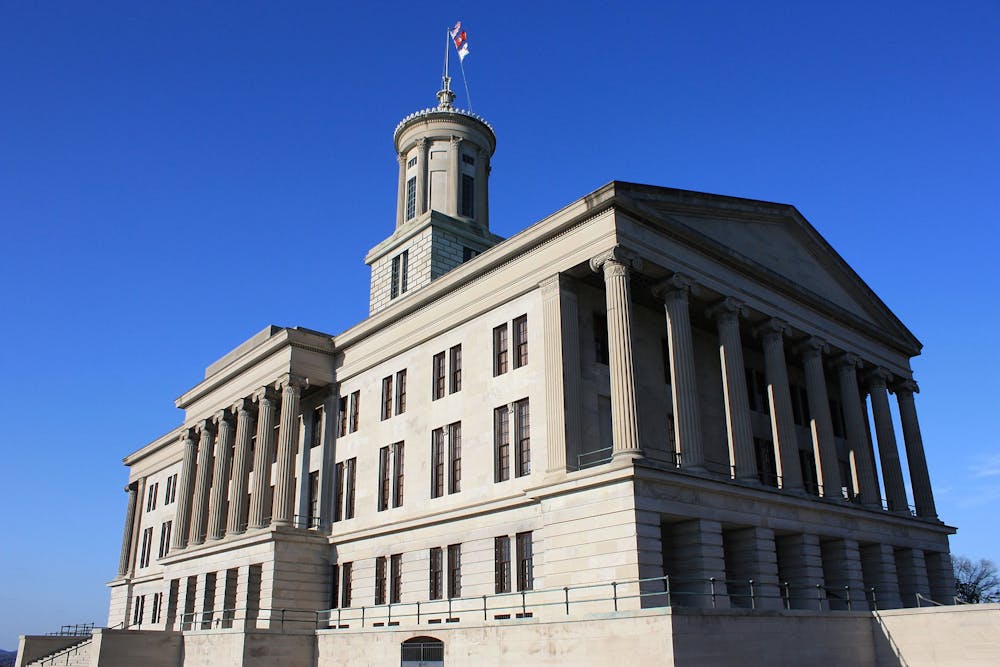Two weeks after The Covenant School shooting, I visited Nashville, Tennessee, over Easter weekend.
It was surreal.
Yard signs in support of The Covenant School were scattered across the city. Small businesses were promoting products from which proceeds would go to the families and teachers traumatized by the event. Churches throughout the greater Nashville area sponsored events and prayer nights in support.
While it seemed like everyone was mourning, a glimmer of hope in the hearts of Nashvillians begged for change.
On April 3, thousands of students from Tennessee schools and universities marched out of their classrooms at 10:13 a.m., the time that Nashville police had first received a call reporting a shooter inside The Covenant School. The shooter would eventually take six lives at the scene, including three children.
The protestors made their way to the state capitol, where they loudly voiced their concerns about gun safety in schools to Tennessee legislators inside. Some students entered into the visitors’ gallery within the House of Representatives chamber. Amid the students’ demonstration in the gallery, three representatives joined them in peaceful protest.
However, Republicans in the House responded to the courageous three by voting for expulsion. Reps. Justin Jones and Justin Pearson were expelled from the House for protesting, while Rep. Gloria Johnson was not.
The resolutions responsible for the expulsions, which were based on a clause in Tennessee’s constitution, claimed that democratic representatives were “knowingly and intentionally bringing disorder and dishonor to the House of Representatives.”
Jones saw the matter differently, though, claiming that the act of expulsion was “an assault on democracy.” Johnson asserted that the expulsion might have been related to skin color; Jones and Pearson are both Black, and Johnson, who protested but was not expelled, is white.
Former President Barack Obama responded to the event on Twitter, saying, “What happened in Tennessee is the latest example of a broader erosion of civility and democratic norms. Silencing those who disagree with us is a sign of weakness, not strength, and it won’t lead to progress.”
Both Obama and Jones are correct. Expulsion of state representatives on the basis of peaceful protest is not just morally wrong, but unconstitutional according to the First Amendment.
Thankfully, both Jones and Pearson were reinstated within the week. While their reinstatement was surely a victory, we still wonder what legislators are doing to promote gun safety in schools.
Enjoy what you're reading?
Signup for our newsletter
Tennessee Governor Bill Lee offered $140 million to place armed security guards at every public school within the state. However, two out of every three Tennessee public schools already have police patrolling their school grounds. Lee claims increasing security around schools will help prevent school shootings from happening. But what if he’s wrong?
On May 24, 2022, a school shooting occurred at Robb Elementary in Uvalde, Texas. It took 77 minutes for law enforcement to take any action to halt the shooting. Poor organization, lack of communication and failure of law enforcement to protect citizens led to the deaths of 21 people, including 19 children.
If hundreds of officers in Uvalde could not save the precious lives of those children, how would Lee’s plan to increase armed security presence at schools decrease the likelihood of school shootings and the number of fatalities?
It probably won’t.
Recently, though, Lee made a step in the right direction, signing an executive order to mandate a stronger background check system for purchasing firearms in Tennessee. He also petitioned the state legislature to pass an order of protection law that would aim to keep firearms out of the hands of people deemed dangerous to themselves or to others.
Order of protection laws like the one Lee has called legislators to consider are usually referred to as “red-flag” laws. Unfortunately, red-flag laws have not been popular with Republican representatives in the past. Tennessee Democrats proposed a red-flag bill following the shooting at The Covenant School, but Republicans blocked the bill last week.
It seems that Tennessee is stuck in a stalemate, a kind of trench warfare in which neither party can move forward. It’s a classic representation of our polarizing political system that pushes and pulls in an eternal tug-of-war.
Conflict will always be at the center of politics; it’s ingrained into the system. However, immobility is unacceptable. While the two parties sit idly by, citizens and children are stuck in the middle, wondering if they’ll ever see the change deserved by the American people.
Eliana Riley is an out-of-state first-year political science major. She was born and raised in Nashville, Tennessee, and attended Christ Presbyterian Academy.




